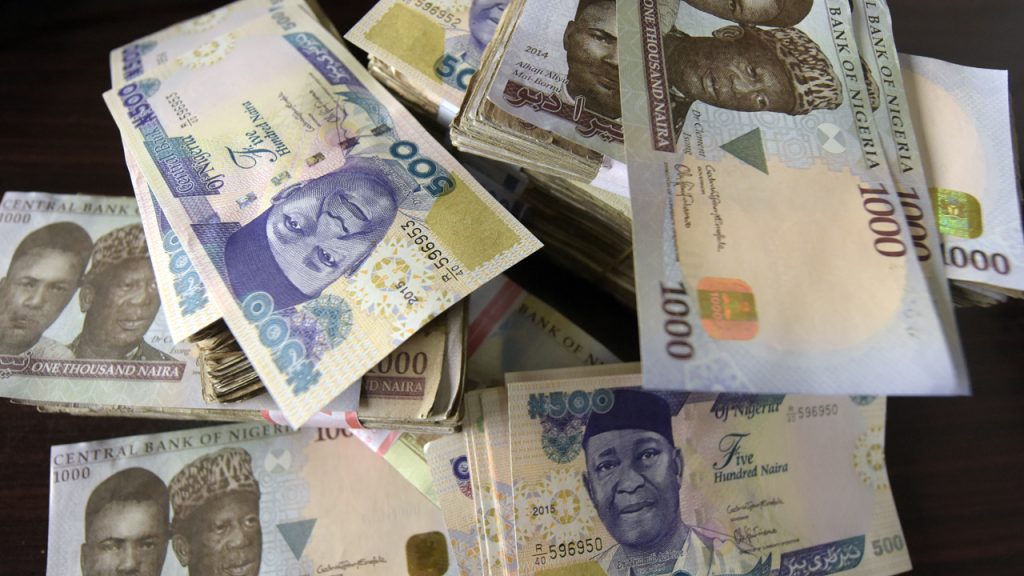The Central Bank of Nigeria (CBN) faced a tumultuous year in 2024, grappling with the aftermath of the 2022 naira redesign policy and persistent cash shortages. The bank’s audited financial statement reveals a staggering 306% increase in currency issue expenses, soaring to N315.18 billion from N77.67 billion in 2023. This massive surge reflects the immense cost of printing, distributing, and managing physical cash amidst the ongoing liquidity crisis. The CBN’s struggle to stabilize cash flow necessitated emergency measures such as mandatory ATM loading, rural cash distribution initiatives, and the establishment of public hotlines to report scarcity issues. These efforts, coupled with increased monitoring and sanctions against non-compliant banks, aimed to alleviate the widespread hardship faced by Nigerians queuing for cash at ATMs and struggling to access their funds.
The cash scarcity crisis also exposed weaknesses in the banking sector’s currency management practices. The CBN imposed fines totaling N192.68 million on three major Nigerian banks – Guaranty Trust Bank (GTB), Fidelity Bank, and Access Bank – for infractions related to cash availability and handling. GTB incurred the largest penalty at N160.40 million following a CBN “Mystery Shopping Exercise” which revealed non-compliance with cash distribution mandates. Fidelity Bank and Access Bank were fined N27.28 million and N5 million respectively for similar violations, highlighting the CBN’s commitment to enforcing compliance and ensuring public access to cash. This regulatory action intensified in early 2025, with nine commercial banks facing a combined N1.35 billion in fines for failing to adhere to cash availability directives, further underscoring the CBN’s zero-tolerance stance on disruptions to cash flow.
The impact of the cash crunch and the subsequent efforts to restore liquidity are evident in the significant increase in currency outside the banking system. This figure surged by 49.3% in 2024, reaching N5.13 trillion compared to N3.43 trillion in 2023. Total currency in circulation also saw a substantial rise, reaching N5.44 trillion, a 49% increase from the previous year. This increase signifies the CBN’s aggressive efforts to inject cash back into the economy following the period of severe scarcity. Despite the CBN’s push for digital transactions, the high proportion of cash outside the banking system (94.2% of total currency in circulation) underscores the continued reliance on physical cash, particularly within the informal sector and areas lacking adequate electronic payment infrastructure. This highlights the challenges in achieving financial inclusion and deepening the formal financial sector.
The CBN’s 2024 financial results reflect a mixed bag of recovery and ongoing challenges. The apex bank reported a N165 billion surplus, a stark contrast to the N1.3 trillion deficit recorded in 2023. This positive turnaround is attributed to improved macroeconomic stability, increased investor confidence, and stricter operational control. External reserves also saw growth, rising to $38.8 billion from $36.6 billion in 2023, driven by factors like stronger portfolio inflows, improved diaspora remittances, and better coordination with the Nigerian National Petroleum Company Limited (NNPC). Furthermore, a significant reduction in loans and receivables, down to N11.9 trillion from N16.1 trillion, indicates the CBN’s move away from monetary financing and towards market-driven credit allocation.
However, the CBN’s financial statement also reveals significant increases in liquidity management expenses and losses from settled derivative contracts. Liquidity management expenses ballooned to N4.5 trillion from N1.5 trillion in 2023, driven by intensified Open Market Operations (OMO) aimed at controlling inflation and tightening liquidity in the face of fiscal injections. Similarly, losses from settled derivative contracts rose to N13.9 trillion from N6.3 trillion, attributed to the CBN’s efforts to clear outstanding foreign exchange obligations inherited from previous administrations. The bank argues that these settlements, while costly, contributed to boosting external reserves, reducing foreign exchange liabilities, and restoring credibility in the forward markets.
Despite the challenges and the enormous cost of managing the cash crisis, the CBN views its 2024 performance as a testament to its commitment to economic recovery and financial stability. The bank emphasizes its focus on strengthening governance, enhancing transparency, implementing balanced monetary policies, and instilling operational discipline. While the substantial rise in currency issue expenses and the continued dominance of cash transactions raise concerns, the CBN’s overall financial recovery and its proactive approach to addressing the liquidity crisis signal a move towards a more stable financial landscape. The long-term success of these efforts, however, will hinge on the effectiveness of policies aimed at promoting financial inclusion, deepening the formal financial sector, and reducing the economy’s reliance on physical cash.














